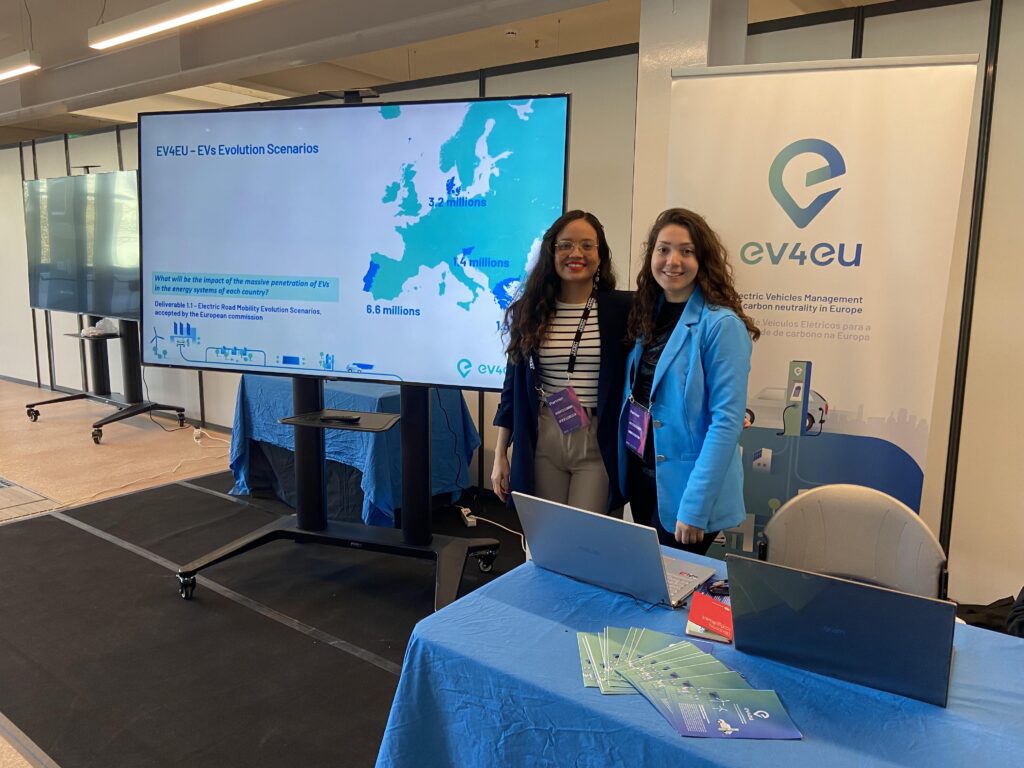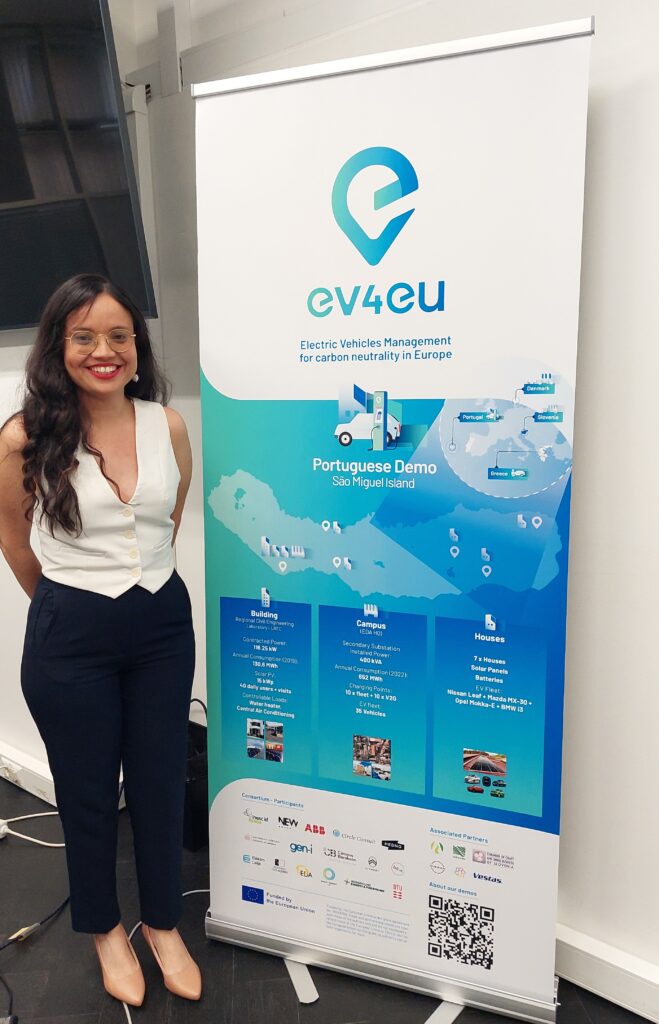
Cindy P. Gúzman was born in Barranquilla, Colombia, where she earned her bachelor’s degree in electrical engineering and took her first steps into the world of science. Later, she moved to Brazil to pursue both master’s and Ph.D. degrees in electrical engineering, followed by a postdoc where she worked on two R&D projects focused on microgrids and e-mobility. Currently, she is a valued researcher in the EV4EU project at INESC-ID.
Recently, Cindy co-authored the scientific paper titled “Dataset on Electric Road Mobility: Historical and Evolution Scenarios until 2050”, which highlights the significant progress made by countries such as Portugal and Denmark in deploying fast-charging infrastructure for electric vehicles.
Following this publication, she was invited to share her insights in Nature Scientific Data “Behind the Paper”, a blog section where researchers provide a personal and behind-the-scenes look at their research paper, discussing challenges, breakthroughs, motivations, and the experiences that shaped their work.
In her post, Cindy offers exactly that – a personal reflection on her journey, research, and perspective on the evolving EV landscape – drawing on her unique background and professional experiences:
“The reality in South America is quite different, so when I moved to Portugal to collaborate as a postdoctoral researcher on the EV4EU (Electric Vehicles Management for Carbon Neutrality) project, it was a truly eye-opening experience. I am continuously amazed by the current advancements in e-mobility and incredibly excited about the future, as society embraces this transformative revolution in transportation.”
In addition to that, she raises questions about the rapid growth of EVs and offers her perspective on the future:
“As a researcher in this field, the rapid growth of EVs, to the point where we may no longer see a single gas-powered car on the roads by 2035, raises many questions. How will we prepare communities, as well as our electrical and transportation systems, for such a significant shift? How will we ensure that so many users can be accommodated comfortably? Will people feel as comfortable accessing charging points as they do with refueling gas-powered cars practically, efficiently, and affordably? Will all European countries experience the same impact or will the distinct energy mix of each nation determine how sustainably they can support this increase in EVs?”.
A great text to read in full here.
The scientific paper behind this text is available here.




Comments are closed.